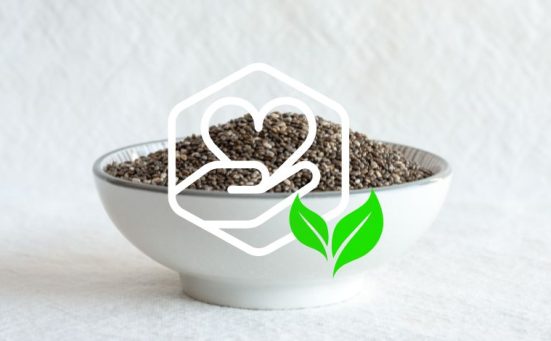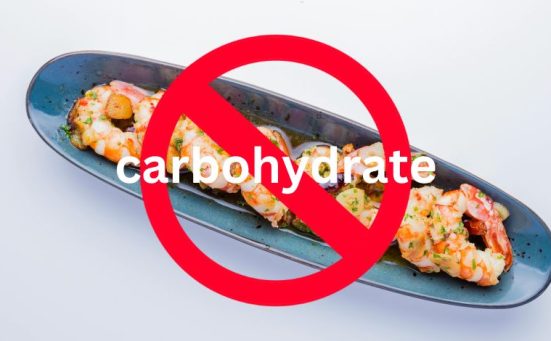
What Beginners Need to Know About the Keto Diet
The ketogenic diet (commonly known as keto) remains one of the most popular diet trends today, but if you’re new to it, you may be wondering where to begin. With its promise of weight loss, improved mental clarity, and potential health benefits for various conditions, the keto diet has captivated the interest of many.
However, before getting started, it’s important to understand how this diet works, what it entails, and whether it aligns with your personal health goals and lifestyle. Unlike conventional diets that focus on calorie counting and portion control, keto relies on a drastic shift in macronutrient intake to drive the body into a unique metabolic state.
This guide will walk you through everything you need to know about the keto diet, from its history and mechanisms to its potential benefits and drawbacks. Let’s get started!
What Is The Keto Diet?
Historically, the ketogenic diet was developed to treat epilepsy in children and is still used to reduce seizures by up to 90%, according to recent scientific studies.
The classic keto diet is extremely high in fat (about 80 to 90% of daily calories), very low in carbohydrates (around 4% of daily calories), and moderate in protein (6 to 8% of daily calories). This macronutrient distribution is quite different from general dietary recommendations, which suggest 20 to 35% protein, 45 to 65% carbohydrates, and 10 to 35% fat.
The key process behind keto is ketosis. Under normal conditions, the body prefers to burn glucose from carbohydrates for energy. When carb intake is significantly reduced or when fasting occurs, the body turns to fat for fuel. The liver converts fat into ketone bodies, which serve as an alternative energy source.
What Foods Can You Eat On The Keto Diet?

A typical keto diet includes:
- Meat
- Fish
- Butter
- Eggs
- Cheese
- Double Cream
- Oils
- Nuts & Seeds
- Avocados
- Low Carb Green Vegetables
Foods to avoid include grains, rice, beans, potatoes, sweets, milk, cereals, most fruits, and certain vegetables high in carbohydrates.
Potential Benefits Of The Keto Diet

While the keto diet is challenging to follow, research suggests it may have some therapeutic benefits beyond epilepsy treatment. Here’s a look at some of the conditions where keto shows promise:
Alzheimer’s Disease
A 2019 study found that a keto diet may enhance cognitive function in Alzheimer’s patients by improving mitochondrial efficiency in the brain.
Parkinson’s Disease
Research suggests that a keto diet may help break down harmful proteins like alpha-synuclein, potentially alleviating Parkinson’s symptoms such as muscle tremors and stiffness.
Multiple Sclerosis (MS)
A 2022 study found that MS patients on a keto diet reported improvements in quality of life, physical health, and mental well being. However, more extensive studies are needed.
Cardiovascular Health
Despite concerns over high fat intake, a 2022 review suggested that the keto diet may improve triglyceride, HDL, and LDL cholesterol levels. However, long term effects remain uncertain.
Type 2 Diabetes
A 2020 review found that the keto diet was linked to better glucose and lipid control, though the observed benefits may be due to associated weight loss rather than ketosis itself.
Cancer
Preliminary research suggests that keto may have anti-tumour effects by reducing circulating glucose, but results are mixed. A 2018 study found minimal impact on liver tumour growth, indicating more human research is necessary.
Can The Keto Diet Help With Weight Loss?

One of the main reasons people adopt keto is for weight loss. Studies suggest that low carb diets may lead to weight loss without negatively affecting athletic performance. However, sustainability is a concern.
A 2020 review found that while the keto diet may improve weight, blood pressure, and cholesterol levels in the short term, benefits beyond 12 months are unclear. Some factors contributing to keto weight loss include:
- Calorie Restriction
Cutting out entire food groups often leads to lower calorie intake. - Water Loss
Glycogen depletion results in water weight loss. - Appetite Suppression
Keto may reduce levels of ghrelin, the hunger hormone, making it easier to eat less.
Downsides Of The Keto Diet

Although there appears to be many benefits from adopting a ketogenic diet, there are a few counter indications which include;
Athletic Performance Issues
Carbohydrates are essential for endurance and strength training. A review found that keto may impair anaerobic and aerobic performance compared to other diets.
Keto Flu
Switching to keto can cause symptoms like brain fog, headaches, nausea, and fatigue as the body adjusts. A 2019 study also suggests electrolyte imbalances may occur.
Digestive Issues
Cutting out fibre rich foods like whole grains and fruit can lead to constipation. A 2019 review recommends increasing fibre intake through vegetables and supplements.
Nutrient Deficiencies
Restricting food groups increases the risk of deficiencies:
- Sodium & Potassium
Low insulin levels cause the body to excrete more sodium and potassium, potentially leading to dizziness and fatigue. - Vitamin C
Cutting fruit reduces vitamin C intake, increasing the risk of deficiencies. - Magnesium & Calcium
Keto may lack adequate sources of these vital minerals.
Disordered Eating Risks
Highly restrictive diets can trigger unhealthy eating patterns and social limitations. Keto may be emotionally challenging, as it limits celebratory foods like cake and festive treats.
Who Should Avoid The Keto Diet?

Keto isn’t suitable for everyone. Those who should avoid or consult a doctor before starting include:
- People with gallbladder or pancreatic issues (fat digestion difficulties)
- Pregnant or breastfeeding women (potential metabolic risks for the baby)
- Children (not suitable unless medically required)
- Individuals with kidney issues (higher risk of kidney stones)
- Those with a history of disordered eating (risk of worsening food obsession)
- Post-bariatric or gastrointestinal surgery patients (fat digestion challenges)
So Is Keto Right For You?
While research on keto is still developing, it appears to offer certain therapeutic benefits. However, whether it’s superior for weight loss compared to other diets remains debatable. Most weight loss diets fail long term, and keto is no exception due to its restrictive nature.
Having said that, done right, keto can help you to lose weight without ever feeling hungry (a problem with calorie restrictive diets).
We recommend following a balanced approach to keto ensuring that you drink plenty of water and ensure that leafy greens and other permitted vegetables are consumed daily.
Over To You
Are You Interested in a Keto diet? DId you find this article helpful? Let us know in the comments and share it with your friends and family so they can all get involved.
SEE ALSO: What Can (And Can’t) Go In An Air Fryer: Full Cheat Sheet
Also, follow us on Pinterest ...



